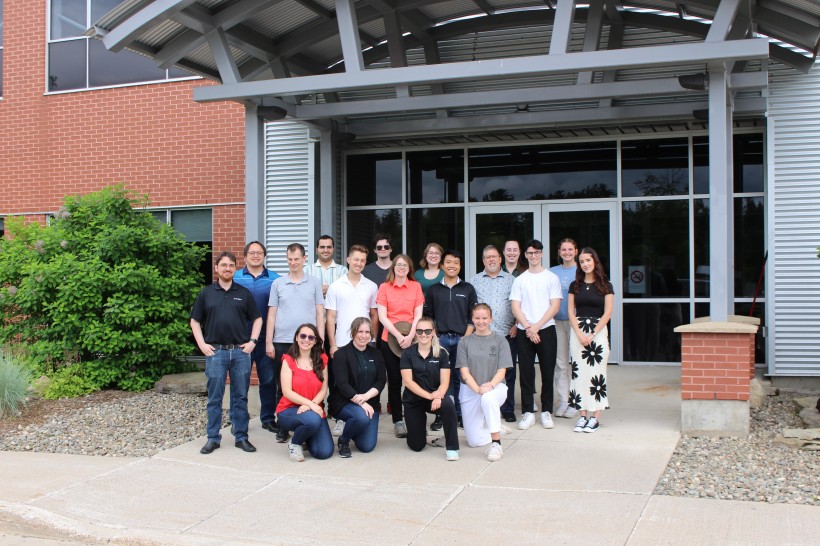Fredericton-based C-Therm Technologies, which has developed a range of tools for testing materials’ thermal conductivity, plans to expand its offerings with a suite of new products suitable for use in electric vehicle production.
The move comes after C-Therm’s initial entry into the EV market saw its profits rise 20 percent last year on the back of record sales. The company is currently growing at a rate that would see its top line gross double every two to three years.
“There’s been this massive mobilization of engineering resources to get EVs to market faster, to increase their range, their performance, their safety,” said CEO Adam Harris in an interview. “And a lot of that comes back to the thermal aspects of the product. A lot of those issues are thermal-based.”
And crucially, he added, the transition to electric vehicles is forcing manufacturers to redesign, not just their cars’ engines, but also many of the materials used to build them, creating demand for equipment to test the thermal properties of those materials.
“An EV is really fundamentally rethinking a car,” Harris said. “It’s not just the power supply, it’s also about, ‘How do we heat and cool these things?’ There’s a lot of work on novel fabrics and textiles, so an electric vehicle … it represents about 70 percent of the applications that we’ve historically serviced, but it brings them all under one umbrella.”
C-Therm is operating at a profit and has about 35 employees, with another handful of open positions and plans to grow to 40 or 45 people by this time next year. To accommodate that growth, Harris is also relocating his team to a larger office space in Fredericton’s Knowledge Park tech office hub.
Harris bought C-Therm from former owner Chuck Cartmill — known to Entrevestor readers as the CEO of LED Roadway Lighting — in 2021. The two men had previously spent 14 years operating the company together.
“Germany is a strong centre of excellence in automotive, but in particular with electric vehicles, so we’ve put a lot of investment into developing the market further in Germany and Europe,” said Harris. “The U.S. is our strongest market historically, and we are also quite busy in places like South Korea and Japan.”










